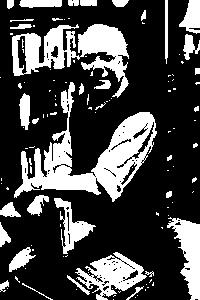Professor of History Patrick Rael, a specialist in African American history, reflects on the legacy of boxing legend Muhammad Ali, and how he will be remembered outside the ring. Ali died June 3, 2016. He was 74.
What Richard Pryor was to comedy, Muhammad Ali was to boxing. Of course, both were masters of intensely individual endeavors showcasing unique talents and geniuses. But both also flourished during profound transformations in the meaning of race and power in American life. Both men possessed remarkable gifts for words, which both used to infuse fields of American entertainment with radical critiques of the role of race in American life. And in the process, both exposed the dark core at the heart of the nation, illuminating not just the gifts of the people they stood for, but calling the nation to a better vision of itself. Finally, both wrestled with the conflict between the desire for fame and the desire to remain true to what they understood to be their racial selves. Even more than Pryor, perhaps, Ali excelled at melding his public persona with his own sense of integrity and moral courage.
Ali was not the first boxing great to build a public persona our of his celebrity (take John L. Sullivan, for example). He was not even the first to infuse this persona with a strong sense of his African American racial identity (see Jack Johnson for that). But no other sports figure in American life so effectively used his fame to draw so much attention to a radical political vision. As a 1964 convert to the Nation of Islam, Ali used his fame to stand against America’s racism at home and abroad. He explained his opposition to being drafted into the US military, then engaged in a long struggle in Vietnam, in just these terms: “The real enemy of my people is here. I will not disgrace my religion, my people or myself by becoming a tool to enslave those who are fighting for their own justice, freedom and equality.” Ali’s gifts in the ring reinforced his talents in front of the microphone: in both, he was outspoken, uncompromising, and unyielding. His signature wordplay, built on long traditions of toasting and boasting among people of African descent throughout the world, helped define the cultural style of black political radicalism.
 A Look Back at the Muhammad Ali – Sonny Liston Fight in Lewiston, 50 Years Later. Read/hear more.
A Look Back at the Muhammad Ali – Sonny Liston Fight in Lewiston, 50 Years Later. Read/hear more. As has happened with Martin Luther King Jr., and even to a degree Malcolm X, Ali’s legacy will be tamed by the collective memory we create around him. He even performed some of this work himself, adopting roles in later life such as UN Ambassador, Presidential Medal of Freedom Winner, Olympic torch-bearer, and Sports Illustrated’s “Sportsman of the Century.” As with other figures, though, we would do well to understand and appreciate on their own terms the ideas that lay behind Ali’s most famous out-of-the-ring actions. For these serve as telling reminders that our penchant for historical amnesia may obscure systemic problems in our society that will not fade away with the passing of a sports hero.

